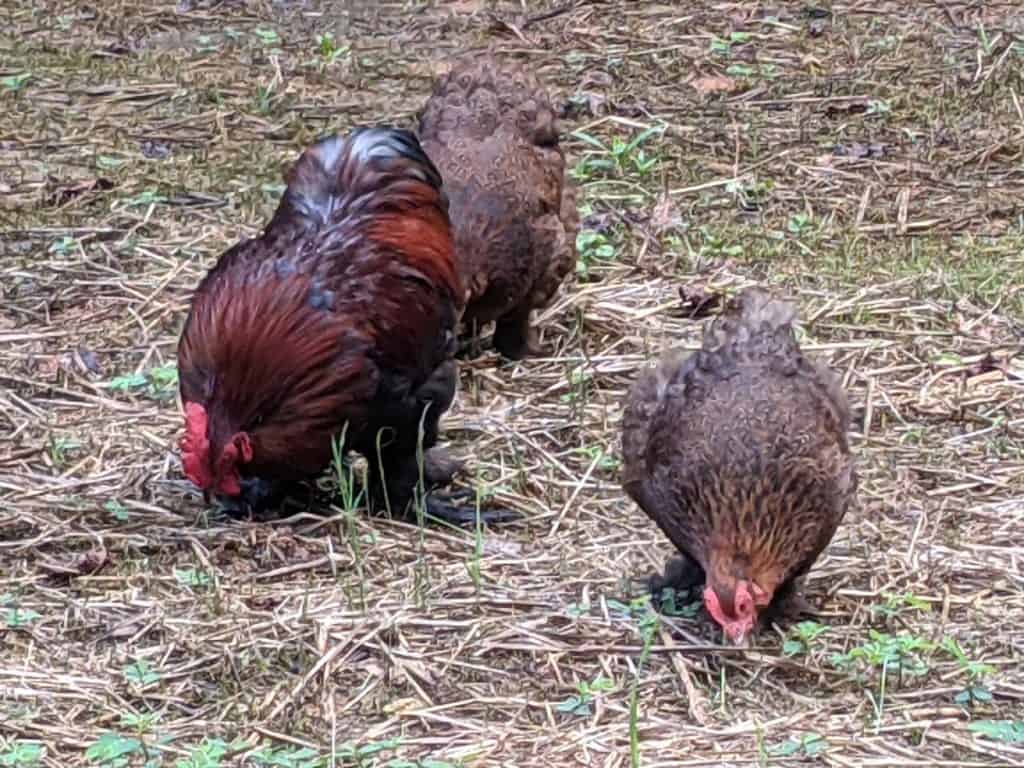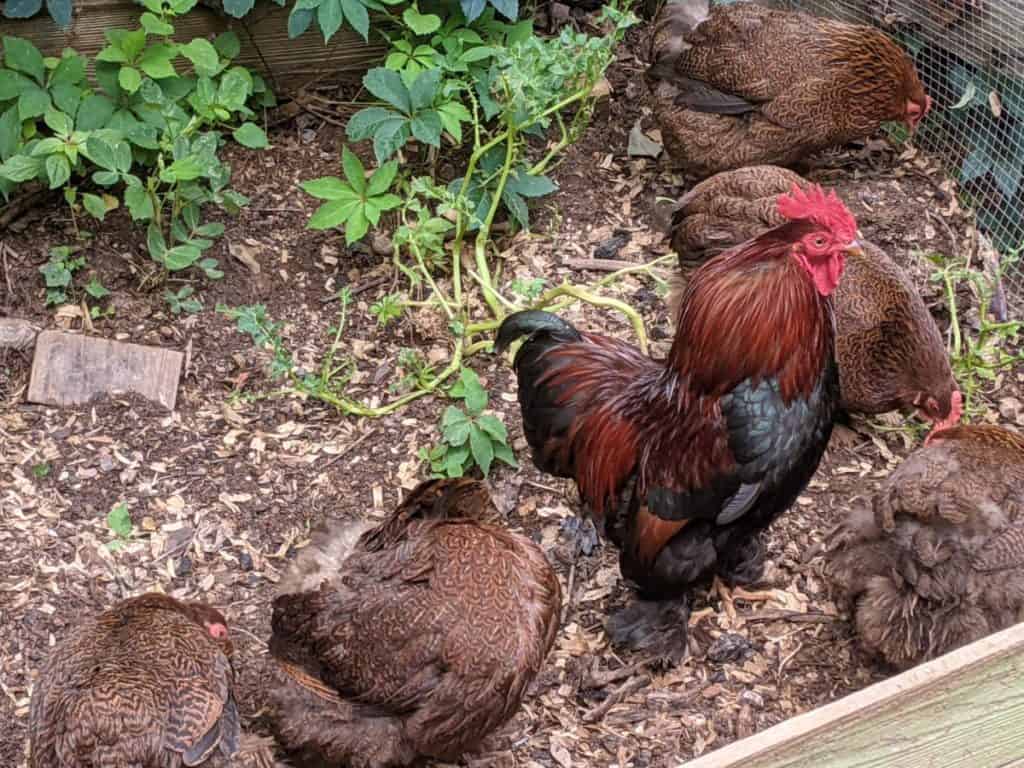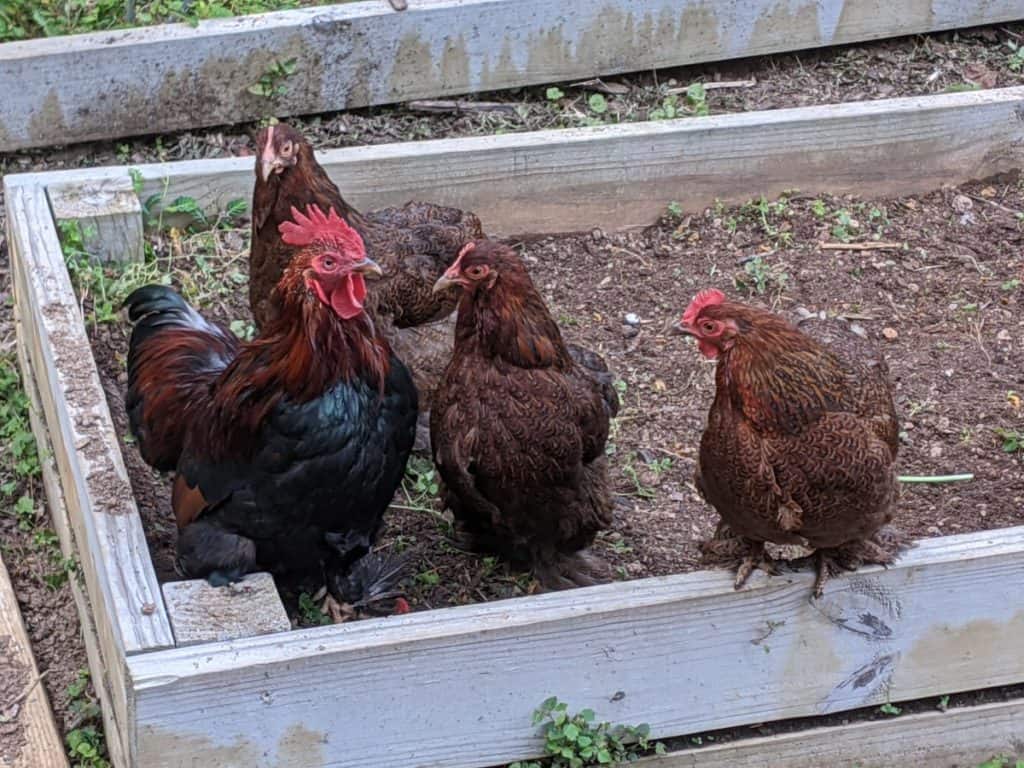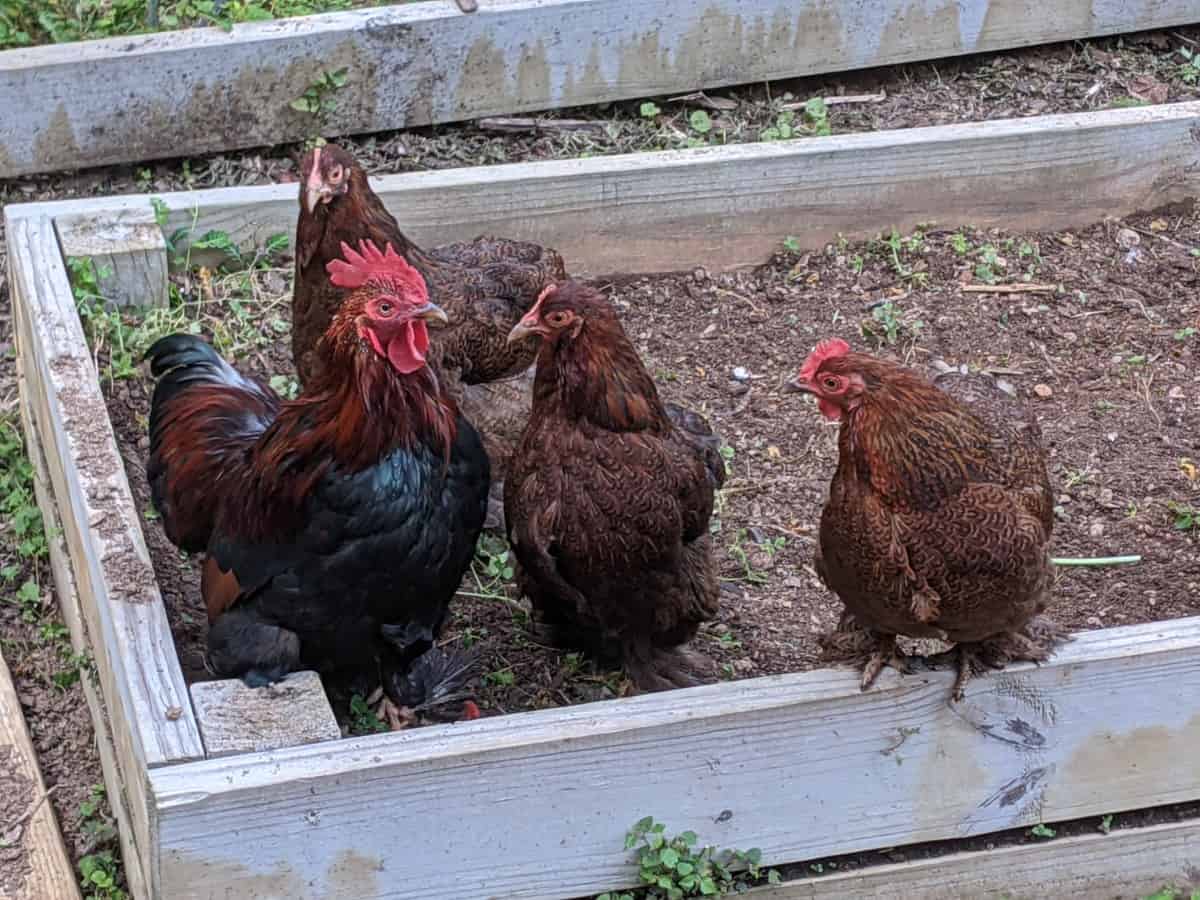If you have ever introduced new chickens to your established coop, you will know that this seldom goes smoothly—your established flock which may normally be quiet, peaceful birds, suddenly revolt. Besides the loud squabbling, what can be more concerning is that the birds may start pecking aggressively at each other.
By understanding the cause of the sudden conflict, poultry owners can quickly restore calm and prevent injuries. But, what is a chicken pecking order?
A pecking order in chickens refers to the hierarchy of the birds within a flock. Its position in the group determines an individual chicken’s access to resources and harems of hens. Chickens intentionally peck or intimidate each other to raise their position in the social hierarchy.
While establishing the pecking order in a group, chickens can cause significant injury or even kill other birds. Poultry owners must understand the phenomenon of the chicken pecking order and take steps to prevent or address it. Failing to follow this important step may cause the unnecessary loss of birds.

When Does The Pecking Order Start?
When a flock is raised together, the birds mature at the same time and are familiar with each other. In this scenario, they often sort out dominance as they are maturing and overtly aggressive behavior, later on, is uncommon. The most dominant roosters will take on leadership positions over several hens, and everyone will fall into place. In flocks where there are no roosters, one of the hens will take on the dominant role.
There are multiple tiers within the chicken hierarchy, and once the pecking order is established, the chickens tend to settle down and accept things. They may try occasionally try to make a power move by trying to challenge or intimidate a bird on a higher tier in the social structure, but generally, this merely entails fluffing up their feathers or a bit of jostling.
However, occasionally the behavior can become more brutal. Individuals may relentlessly begin pecking at another bird, causing injury. A savvy poultry owner must be able to distinguish between tussles for higher rank in the pecking order or just plain bullying.
Which Chicken Ranks The Highest In The Pecking Order?
The most dominant, healthiest chicken heads up the pecking order in a flock. Usually, this is a rooster, but a hen will step into this role when no roosters are present. The big bird at the top of the pecking order will be the first to eat and roost on the coop’s highest available perch.
Your dominant chicken will keep order within the flock and quickly quell any small challenges to its position. Chickens are social birds, and once dominance in the pecking order has been established, it will remain the same for as long as the main chicken remains healthy and strong.

How Can You Stop Chickens From Pecking Each Other?
Several factors affect the structure of the pecking order in coops.
| Factors Affecting The Pecking Order Of Chickens | |
| Space | Chickens that do not have enough square feet of ample space are more likely to attack each other. The weaker birds will not have anywhere to take refuge from the challenges for hierarchy from the and stronger, more dominant birds. Even if they act submissively, the weaker birds may get picked on and get injured. Chicken coops should be designed so that there is enough space for birds to physically distance themselves from others and should contain some quiet spots where birds lower in the pecking order can take refuge when necessary. A great idea for this is to place a few tree branches around the edges of the coop so that lower-ranking birds can find a safety zone from more dominant birds. |
| Access To Food | The dominant birds in the pecking order will always eat first. They will get the lion’s share of any food or treats that are provided. It is a good idea to have multiple feeders spread around your coop. The lower-ranking chickens will then avoid the dominant birds and still get enough to eat. Also, avoid feeding limited amounts of chicken food at specific times. It is far better to free feed – that is, to have basic chicken feed available at all times. Of course, you can give treats periodically, but you can then ensure that those are evenly distributed to all the birds in the coop. |
| Introduction Of New Birds | Once a pecking order has been established in a flock of chickens, there is usually relative peace. However, if new birds are suddenly introduced, it will throw things into disarray. The dominant birds will immediately begin to assert their dominance. The new birds will also be bewildered and defend or attack as necessary. Depending on what the breeds and sizes of the fowls are, this could result in terrible injuries. If you would like to add new chickens to your existing flock, it is recommended to keep them in a large crate or pen where the other birds can see them but with no physical interaction. Following that, fence off an area within the existing chicken coop. Only after a few days or weeks, when the birds have got used to each other, should you let them start mingling. You will need to supervise until you are confident that your existing birds have accepted them. There may be some minor scuffles as they will need to find their place within the coop’s pecking order, but they should be accepted into the flock. NOTE: If any birds sustain any open injuries, they need to be removed, and the wound must be treated immediately. Chickens will congregate to peck at any open wound on another bird. This could result in the death of the injured bird. |
| Boredom | Chickens are inquisitive birds that require stimulation to stay healthy. They should have access to an area where they can take dust baths and have things in their environment that keep them occupied. By providing them with some chicken toys, like a chicken swing, or by moving them to a new area in a chicken tractor, the top-tier chickens in the pecking order may be too preoccupied to bully the lower-ranking birds. Another great idea to give them something to peck at besides each other is to provide a ‘flock block.’ These large solid feed blocks require the chickens to peck repeatedly to get the seeds loose. So instead of just pecking the loose food out of a feeder, they will need to put some effort into removing the food. Purina has a great range of these available at feed stores, but many recipes are available online if you want to make them yourself. Your chickens will really enjoy the challenge, and it will keep them busy and happily entertained. |
| Too Many Roosters | The ratio of hens per rooster needs to be carefully maintained. If you don’t have enough roosters, you may not get fertile eggs. If you have a few too many roosters in one space, they will constantly fight each other for dominance over batches of hens. They will also be highly likely to injure your hens as they are relentless in their constant efforts to mate. In general, you should aim to keep around ten hens per rooster in your flock. You can adjust this number slightly up or down, but it is something that you will need to monitor closely. It is near impossible for a stable and peaceful pecking order to be established within a flock if there are not enough hens per rooster. |
What Is The Difference Between Pecking Order And Bullying?
Chickens may periodically engage in spats of aggressive behavior while trying to establish the pecking order in the flock. These are usually short-lived, and once dominance has been asserted by one of the birds, peace will be restored.
If you have provided your flock with all their basic needs in terms of a balanced diet, space, warmth, nesting, and stimulation, and your chickens are still pecking each other, it may be that you have a bully in your flock.
A bully will continue to harass weaker birds and needs to be separated for a period. You can try to introduce it again, but it may need to be re-homed if that doesn’t work.

What Else Could Cause Chickens To Peck Each Other?
When chickens are confined and stressed, they frequently engage in injury-causing pecking behavior. It is especially evident in commercial laying setups where hens are confined to very small spaces. Factors like heat, too much light, lack of space, and boredom causes the birds to be stressed, and they may peck at each other out of frustration.
Conclusion
Keeping chickens is fun and rewarding. It is fascinating to watch how the flock arranges the pecking order. Poultry owners must be aware of the needs of every bird in their flock, especially those who are lower in rank, so that they can maintain the health of all the birds in the coop.





